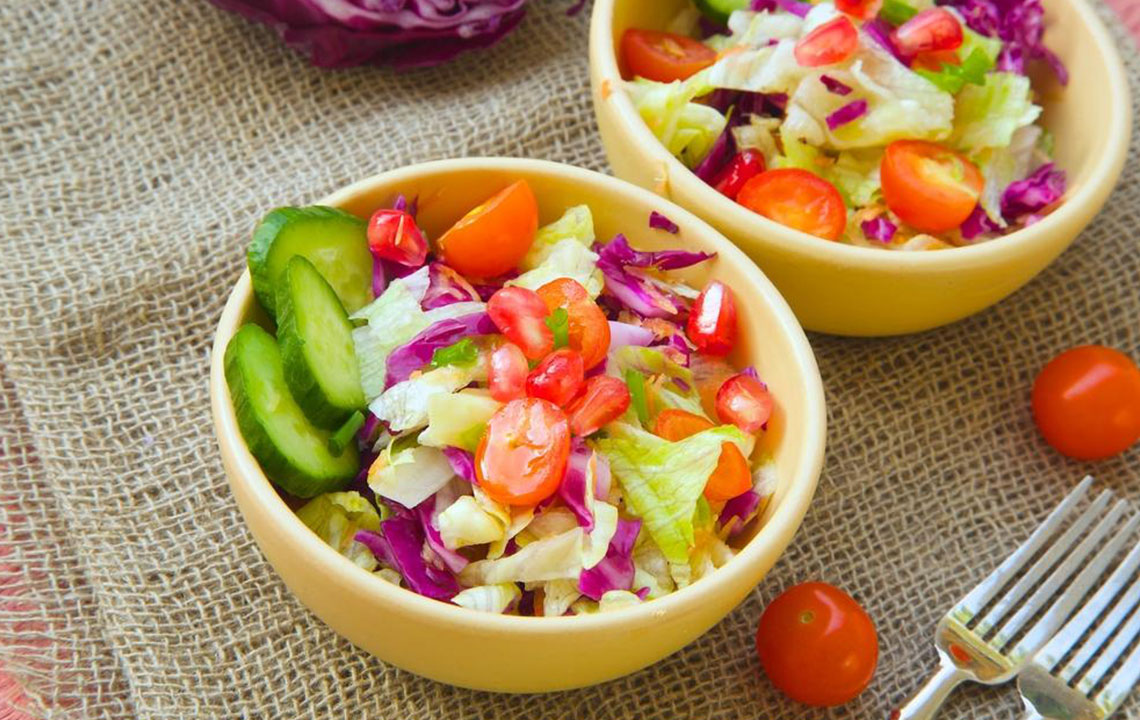A Balanced Food Diet for Diabetics
Individuals who have been diagnosed with diabetes are always advised to get onto the right diet plans as a first step for keeping the blood glucose levels in check for the long term. A balanced diet would include vegetables, fruits, and all forms of healthy proteins. This type of a well-planned diet is not only useful for boosting overall health but also avoid any form of complications in the future.
When you have been diagnosed with diabetes, the next step is to identify the type – type 1 or type 2. In addition to this, you must consult a dietician so that you can work out the right food for diabetes.

Picking the right food for diabetes
There is no rule or a need to cut down on what you like when you have been diagnosed with diabetes. The idea is not to deprive oneself of food but to work out a balanced diet that will include healthy food choices and cut down or limit the consumption of unhealthy food items. Two main components that end up causing the blood sugar levels to rise are carbohydrates and sugar, consequently, a balanced diet plan will not eliminate them in totality but allow for moderate consumption in alternative forms.
The first step a dietician would get onto is to measure your current carbohydrate intake. Each person with diabetes has different ways of processing carbohydrates based on their body metabolism rates, activity levels including their lifestyle choices, and use of medication such as insulin. Based on the analysis, one can then work out an optimal plan where the body will allow a smooth break down of carbohydrates without negatively impacting your blood sugar levels. There is no secret food that will help manage and treat diabetes. It is more composite in nature, and requires both cautious planning and focus. This will help you stick to the schedule that you have made for yourself to treat diabetes.
As per the research, the best way to know if your diet is right is to ensure that it includes the right amount of vegetables and fruits, choice of lean meats or proteins, does not include any form of trans fats, and includes foods that have zero or lesser amounts of sugar.
Here are two best food options for diabetes that has been recommended for a healthy and balanced lifestyle.
Green leafy vegetables
Green leafy vegetables contain a good balance of minerals, nutrients, and vitamins in the right quantity. These food items for diabetes also have very little to no impact on your blood sugar levels. Specifically, green leafy vegetables such as kale and spinach are loaded with calcium and Vitamin A, along with being the natural plant source for potassium. They are also rich in both fiber and proteins. According to research, experts have noted that the starch digesting enzymes along with the antioxidant properties present in these leafy vegetables are the best way to keep one’s body healthy. Some of the best choices of green leafy vegetables are – kale, spinach, collard greens, broccoli, cabbage, and bok choy. Adding these food items into your regular diet is quite easy as you can easily pair them as a side, or add them in salads and soups. These can also be paired well with any form of lean protein from tofu to chicken.
Whole grains
The second best food for diabetes is whole grains as they are rich in fiber and carry more nutrients than any form of refined white grains. It is critical to have a diet that has high amounts of fiber as they help to slow down the overall digestion process for those with diabetes. This works great as it helps to allow the nutrients to be absorbed rightly without causing any spike in the blood sugar levels. When compared to both rice and white bread, whole grains and wheat are placed at the lower scale of the glycemic index scale. This is due to the very fact that their impact is minimal on the blood sugar levels. Some of the best whole grains to add into your diet when picking your food for diabetes are brown rice, buckwheat, millet, rye, bulgur, whole grain pasta and bread, and quinoa. A diabetic patient must stop swapping any form of white grains from their diet with whole grain substitutes.
Each individual is different in the way that they process food, and as noted above, a lot of factors come into play when trying to determine which foods work best for diabetes. Hence, it is essential that you work out a plan alongside a dietician or a trained medical professional so that you make the best plan for adopting a healthier lifestyle and do not end up consuming the wrong foods for diabetes.

